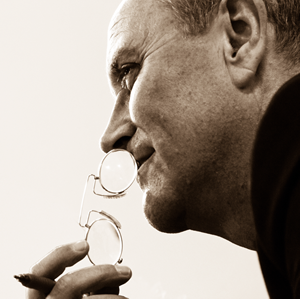Finding the Light in Darkness
“We live life forward, and we understand it backwards.” This saying resonates with me on many levels. How I relate has everything to do with going through tremendous suffering as a result of being unable or unwilling to forgive those who were the cause of the suffering. This horrendous period of torment made absolutely no sense to me while going through it, but now, looking back, it makes perfect sense. Today I pull from those experiences daily to encourage those who are currently in emotional pain and in great need of hope.
The Garden of Love and Loss
By Judith Sarah Schmidt, PhD
Reviewed by Nancy Eichhorn, PhD
Books come to me at the moment I need them. It may sound strange that a...
The Mindfulness and Character Strengths Workbook
The Mindfulness and Character Strengths Workbook is everything I hoped for and more. It is a well-written, easy-to-follow, detailed to the nth degree workbook with extensive, free online materials to support the process including audio-guided meditations. Congratulations Ryan on a much-needed workbook to support people exploring character strengths and their integration with mindfulness.
Origins
Join Pedram Shojai, OMD, for his free, exclusive, full-length movie screening of Origins.
According to the Origins Film Premiere website, this film took four years...
Heart Open Body Awake: Four Steps To Embodied Spirituality
Reviewed by Nancy Eichhorn
I recently received a copy of Susan’s newest book, Heart Open Body Awake: Four Steps To Embodied Spirituality, from Shambhala Publications,...
The Neuroscience of Pain:
The central nervous system plays a critical role in the association between psychological factors and pain. The neural circuits that are involved in these bi-directional relationships include several systems that influence peripheral processes relevant to pain perception. It is possible that transient psychosocial factors as well as long-term consequences of developmental trajectories adversely affect these neurobehavioral pathways. Exploring the neuroscience of the biobehavioral and developmental mechanisms of pain is the goal of the upcoming Special Issue of Psychosomatic Medicine.
Addiction from the Bottom Up: A Felt Sense Polyvagal Model of Addiction
Reaching beyond the western, post Descartes view of mind/body duality as distorted and harmful, I have explored alternative ways of experiencing and conceptualizing the body. I think this is critical when working with addiction because our current understanding and treatment of addiction reflect this disembodied view—addiction is seen as a malfunctioning of our computer-like brains. But the current brain disease model is failing us. Rates are soaring. People are dying in the streets. We can and must do better than this. To approach addiction from a new perspective, I created a model to conceptualize and treat addiction: The Felt Sense Polyvagal Model (FSPM).
On Writing The Practice of Embodying Emotions
One thing I have learned about myself is that I am intuitive. An idea appears to spring forth from the depth of my unconscious, without much form but with enough felt sense conviction to pursue it one way or the other. It acquires shape and clarity and is reality tested in the process of expressing it, teaching it, or writing about it. It is not unlike the process that a painter might undergo in bringing an inspired image in one’s mind’s eye to the canvas. I now understand and accept this as my creative process
Contemporary Reichian Analysis
Increasing awareness and understanding of epigenetics and neuroplasticity in current research has resulted in a new perspective of psychotherapy that is integrated with neurobiological information. This information is at the root of an emerging paradigm shift in body psychotherapy that I call Evolutive Stage Neuromediator Vegetotherapy.
Interested in being Editor-in-Chief of an international peer reviewed Journal?
The EABP and USABP are seeking applications for their new Editor-in-Chief (an EABP member) and their new Deputy Editor (USABP member). The role starts January 2019.
Editors will work with their new managing editor, Antigone Oreopoulou, thus forming the IBPJ editorial team. The team is responsible for:
identifying the journal's aims, scope and direction
maintaining the professionalism and quality of the Journal content
publishing the journal
They are seeking experienced clinicians with good writing skills (having published one's own book or articles) and a good sense of the English language (knowledge of APA style and formatting is also necessary), organizational skills and communications skills are also needed.
If you are interested, please contact Antigone Oreopoulou at [email protected]














